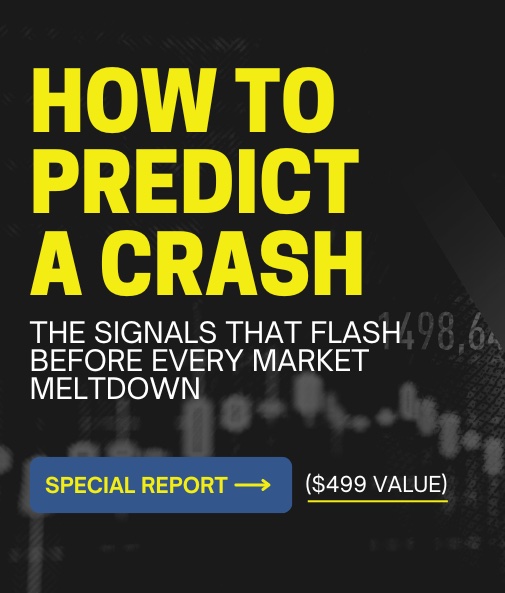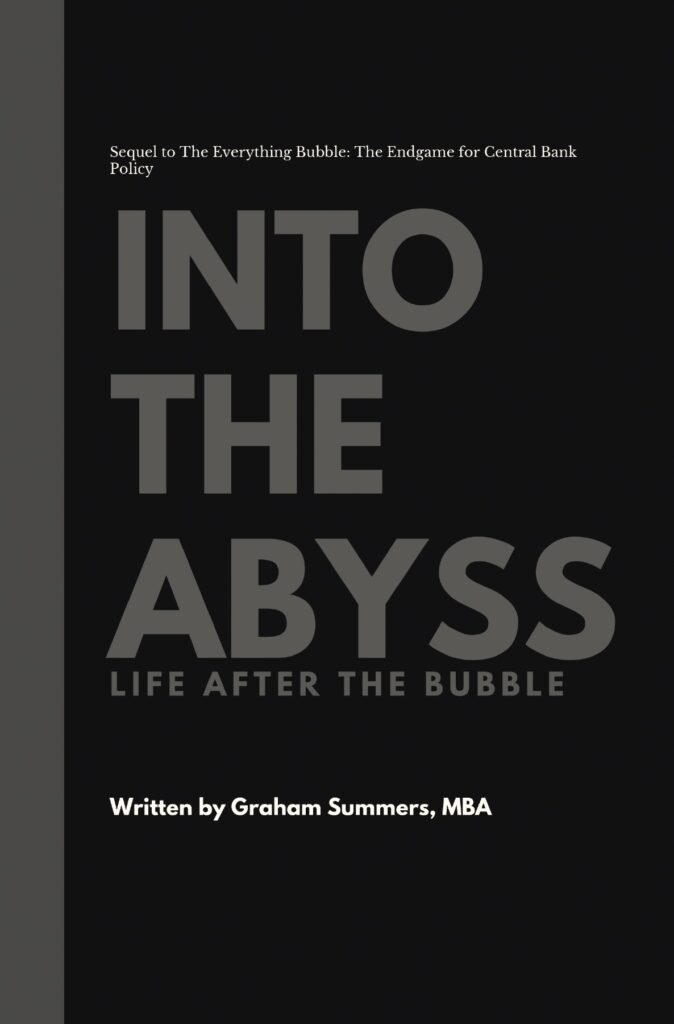While the vast majority of commentators look at the market action of the last three months and celebrate, I cannot help but shudder. The reason is that the stock market has been propped up solely by Central Bank and/or Federal Government intervention or the hope of more intervention.
That alone is worrisome as it indicates the stock market no longer cares for economic or financial fundamentals (something that has been clear for several years now).
However, far more worrisome is fact that the Fed and Federal Government are now not only propping up stock prices, but are openly trying to crush other assets (especially politically dangerous commodities such as oil and gasoline) in an attempt to make it appear that inflation is under control.
Consider the following:
1) The sudden talk of “sterilized QE” or QE that won’t involve more money printing (read: There is No Such Thing as Sterilized QE).
2) The sudden and curious collapse in precious metals (right after Bernanke says QE 3 isn’t coming anytime soon… only for the Fed to leak the “sterilized QE” talk a week after Gold and Silver collapse).
3) The Government’s decision to unlock our Strategic Petroleum Reserves again (crushing gas prices which were the primary inflationary concern of the Obama administration)
4) Those Wall Streeters close to the Fed (Goldman’s Jan Hatzius) predicting “sterilized QE” coming in April or June
All of these moves have two goals:
1) Propping up stocks
2) Crushing those commodities/ assets that are politically (and economically) dangerous (gasoline, food prices).
The take away point that I’m trying to make here is that we’re now at the point of intervention in which the Fed is openly managing the markets right down to specific asset classes.
Never in history has Central Planning gone well for either the markets or the economy. Wall Street and the mainstream media may cheer that stocks are up and inflation “transitory” (despite clear evidence that the latter point is false: the bond market indicates real inflation to be around 10%). However, I for one am truly terrified by what I see occurring in the markets.
The reason for this is that I do not view what’s happening through the same lens as most investment commentators. Most commentators, including Fed officials, view the Fed’s involvement in the markets as being akin to a drug dealer trying to cure an addict of his/her addiction by providing more drugs (see Dallas President Fisher’s recent speech on the market’s need for “monetary morphine”).
I disagree with the “addiction” metaphor because it implies that the markets/ addict could potentially become healthy if the dealer stopped dishing out the drugs. This ties in with Bernanke’s claims that everything is under control and that he can remove the excess liquidity anytime he wants to.
Remember, Bernanke is speaking from the perspective of an economist: someone who believes that monetary policy and the economy are items that are separate from human psychology or emotion (much as an addiction can be viewed as a physical issue that can be cleared up by physical removal of the drug and the body adjusting accordingly).
However, the markets and the economy are not standalone items or “real things” in of themselves. They are in fact measures of human activity. And human activity is guided by reason and emotions, which are based on varying amounts of evidence and belief.
With that in mind, I believe Central Bank intervention is not a drug or “hit” for an addict. Instead, it is a cancer that has spread throughout the financial system’s psyche and which is killing the markets and Democratic capitalism.
The markets are supposed to be based on Capitalism. And Capitalism, particularly Democratic Capitalism, which is based on the involvement of the general population, by definition requires two primary items:
1) The risk of failure as well as the opportunity for success
2) Trust between market participants
The Fed’s policies have damaged both of these areas beyond repair.
Regarding #1, the Fed’s action of bailing out the connected elite erased the concept of risk of failure for that group entirely. The Big Banks continue to engage in reckless practices including drawing down loan loss reserves, refusing to come clean about their true balance sheet risk, paying out record bonuses, and of course, screwing their clients (the Greg Smith op-ed in the New York Times is only the beginning of the whistleblowing for Wall Street).
Put simply, the Big Banks, and even well-connected hedge funds (several of which were warned in advance of the Fed’s upcoming moves in private meetings with Fed officials) are now basing their business models and investment strategies on the idea that risk of failure is next to none.
This in turn has destroyed the second principle of Democratic Capitalism: trust between market participants.
By supporting the very folks who should have failed (the Big Banks) the Fed has engendered distrust from those who were not on the receiving end of the bailouts (Main Street). Indeed, housing data has now made it clear that the policies implemented by the Fed were aimed at propping up the Big Banks/ Wall Street, NOT the housing market/ Main Street.
As a result, the markets are now viewed by market participants and the general public as a “rigged game.” This, in turn, has caused two trends to emerge:
1) Investors leaving the market en masse (the mutual fund industry saw investors pull $132 billion from stock-based funds in 2011 while the hedge fund industry experienced a net removal of funds in 4Q11 for the first time since 2Q09).
2) Those investors who remain market participants simply betting on continued Fed intervention and/or front-running Fed policies when they can.
Put another way, the Fed has killed the most important form of trust for Democratic Capitalism. I’m referring to the trust that there is one set of rules/ guidelines for all market participants or that the person on the other side of the transaction has the same risk of failure and opportunity for success as you or I do.
Indeed, things have gotten so bad that even those on the receiving end of Fed largesse no longer trust one another as evinced by inter-bank lending in the US and the EU.
As if this was not bad enough, the Fed is not only killing the basic trust of Democratic Capitalism and replacing it with another, more “sickly” form of trust: the trust that the Fed will continue to prop up those institutions that should have failed as well as the stock market in general.
This fits well within my “cancer” metaphor, as the Fed is literally killing off the positive form of Democratic trust needed for Capitalism and spreading a negative Moral Hazard-based form of trust, much as cancer cells kill off healthy cells by infecting them until they too are cancerous.
So while the mainstream media and various “gurus” view the Fed’s actions as saving capitalism, I totally disagree.
The Fed’s actions have permitted cancerous beliefs to spread throughout the financial system, thereby killing Democratic Capitalism which is the basis of the capital markets.
Short-term, this may have allowed the “patient” (the markets) to continue to function, much as can someone with cancer can continue to function normally for a while before the disease makes it impossible. But long-term the end result will prove disastrous.
I’ll address the “end result” in my next research piece. But for now, everyone should know that whether the “end result” happens next week, next month, next year, or further down the road, it will be akin to what happens when cancer spreads unchecked throughout a patient.
On that note, if you’re looking for actionable investment strategies on how to play these themes in the markets I suggest checking out my Private Wealth Advisory newsletter.
Private Wealth Advisory is my answer to the consensus view presented by the mainstream media and non-thinking “analysts.” It’s a bi-weekly investment advisory published to my private clients. In it I outline what’s going on “behind the scenes” in the markets as well as which investments are aimed to perform best in the future.
My research has been featured in RollingStone, The New York Post, CNN Money, the Glenn Beck Show, and more. And my clients include strategists at many of the largest financial firms in the world as well as numerous hedge funds.
To learn more about Private Wealth Advisory… and how it can help you navigate the markets successfully…
Graham Summers
Chief Market Strategist




